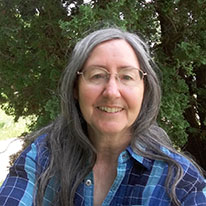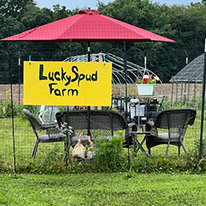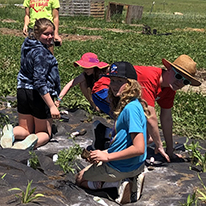Edgerton School District’s Summer School programs at Silverwood Park have an expert gardener on hand—Ruth Flescher, Master Gardener Volunteer.
Ruth grew up in Madison, one of ten children who enjoyed helping their mother with a garden full of salad vegetables. She’s rarely been without a garden since. Now retired, she tends a big garden of mostly raised beds of vegetables, with some perennial flowers “to keep me happy,” she says.
Ruth is a Master Gardener Volunteer, meaning she has trained with the UW-Madison Division of Extension to do outreach on scientifically proven horticulture information. The program requires passing a test on basic gardening knowledge. Once approved, Master Gardener Volunteers spend 24 hours in volunteer time and 10 hours in continuing education related to gardening every year.
Ruth is volunteering with the “Garden to Harvest” portion of Edgerton Summer School. “I’ll be at the Silverwood gardens on a regular schedule, ready to explain what’s going on and what to do about it,” she says. “For the Day Camp program, I’m available as a resource.”
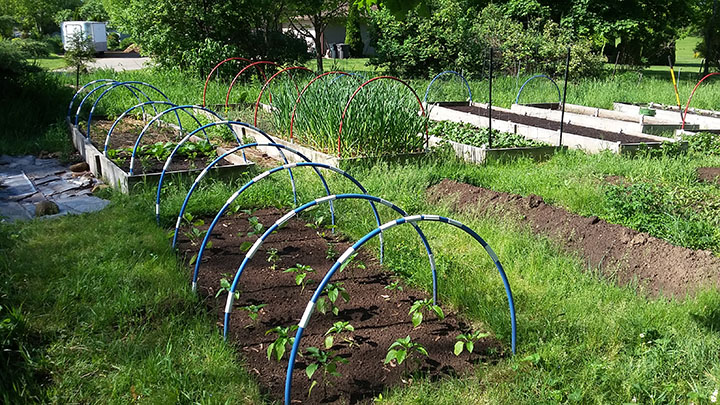
Foreground: peppers. Background: raised beds.
Ruth is growing a demonstration garden at the park where she will showcase gardening techniques, such as different ways to support a tomato plant and introduce unusual vegetables (ever seen a ground cherry?) to “open people’s minds about what to grow,” she says. Ruth will also maintain an “Information Central” kiosk for gardeners at the park with up-to-the-minute information on plants, pests, and more.
Ruth says she loves the “magic” of gardening: “You take a few dry wisps of plant material—the seeds—and put them in the ground. Add a little water and a minimum of care and they produce beauty and nourishment out of almost nothing. It’s amazing!”
Gardening has many benefits for young people: Studies have proven that it helps improve motor skills, focus, concentration, and confidence, all while providing moderate exercise. It fosters organizational skills and instills a sense of responsibility. “But the most beneficial thing is that it opens you to food possibilities,” Ruth says. “Children are more likely to try vegetables they’ve helped grow and are more inclined to like them. That’s a whole garden full of improved nutrition and health that’s likely to last throughout their lives.”
Students who work with Ruth this summer will learn three important points about gardening:
- Seeds and plants want to grow. You just need to give them the right conditions to thrive.
- Nourish your soil and it will nourish your plants.
- Start by growing what you want most and learn about that.
“Gardening is kind of like learning a foreign language—you’ll build up your vocabulary of plants and the grammar of gardening over time,” Ruth says.
Ruth is eager to share with Edgerton School District summer program participants her sense of how amazing nature is, with its remarkable cycles of creativity and destruction that allow plants and animals to find their place in the garden.
By Sarah White
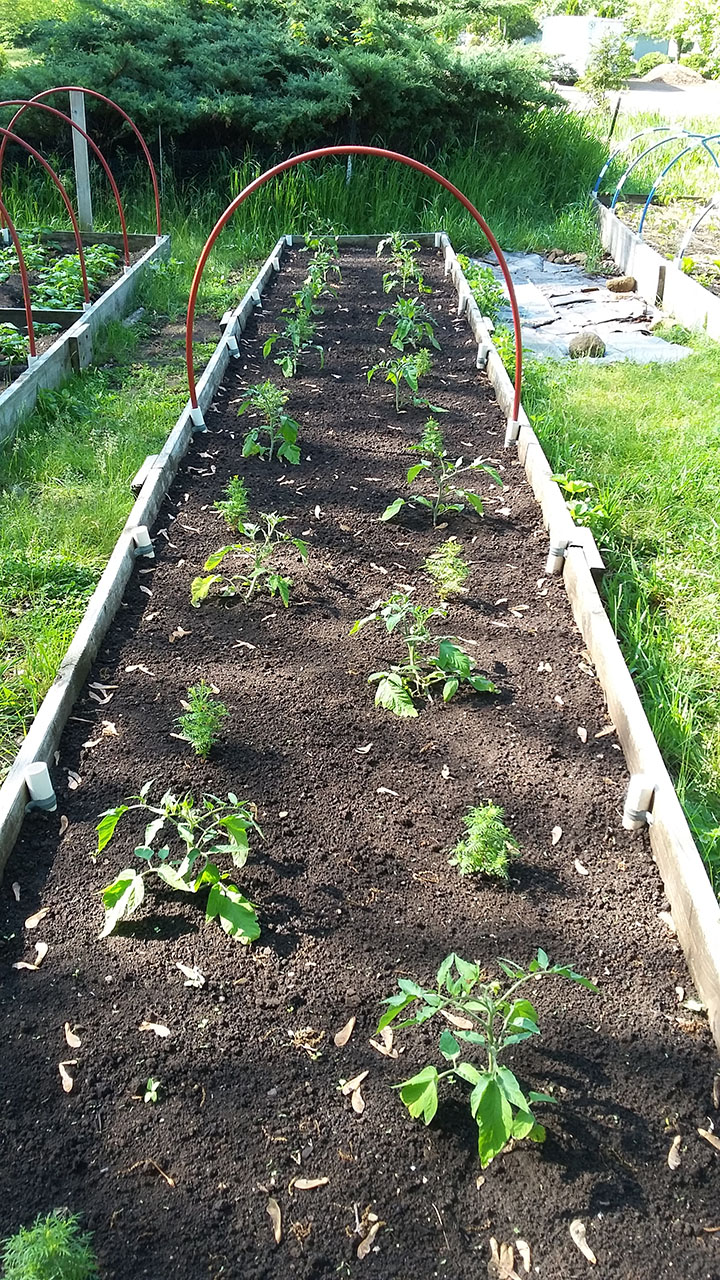
Tomatoes!

